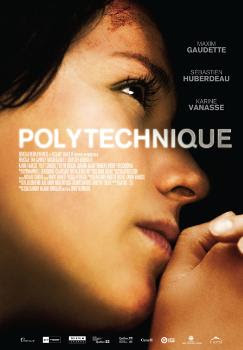10/28/2021
French Canadian director Denis Villeneuve’s last two films have been big-budget Hollywood productions in “Blade Runner 2049” and “Dune”. When an extremely talented and thoughtful filmmaker like Denis “goes Hollywood” it’s always a sad moment. Sure he is now extremely rich, but his film don’t feel like they are really his, they are just apart of some bigger machine. His breakout film was the 2009 film “Polytechnique”. An intensely disturbing account of the mass shooting at the Montreal Polytechnique school in 1989. Although this film was shot in black and white to mute out all colors, especially blood, it is similar to Gus Van Sant’s 2003 Columbine film “Elephant”. Both films were highly acclaimed by critics, with “Elephant” even winning the top prize at the Cannes Film Festival.
“Polytechnique” opens with a bang (so to speak) as we are jolted by a scene of graphic violence, after this we cut back and are introduced to a seeming normal young man but who has a seething hatred for women. He is your typical disgruntled young male who wants to blame society for all his problems. He is isolated, lonely and is not given a name, just credited only as “The Killer”.
We are introduced to Valerie and Stephanie, two female students who we follow throughout the film. We also follow a male student Jean-Francois, who looks to have some of the same issues as The Killer, but deals with them in different ways but ultimately arriving at the same conclusion. Valerie is one of a few female engineering students and takes a lot crap for it but does get the internship that she so desperately wanted despite all this. She is strong willed and takes things as they come, she also has the strong support of people around her, especially her friend and roommate Stephanie. As they both walk into a class room like another day little do they know what is about happen on this cold December day.
A movie like “Polytechnique” could be rather exploitive in the wrong hands, but Villeneuve does his best to honor the actual victims of this tragedy and not to glorify the killer. Like I mentioned at the beginning the film was purposely shot in black and white as to not glorify the killing by showing large amount of red blood. Although there is no getting around the fact that Villeneuve did use this film to jump start his career. His subsequent films have reinforced the fact that he is indeed a gifted filmmaker. His jump to big budget Hollywood sequels and remakes will hopefully be short lived so he can return to more original stories and content.


